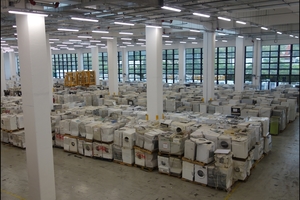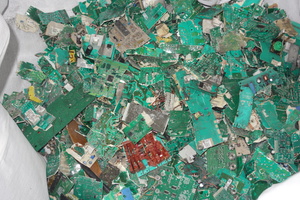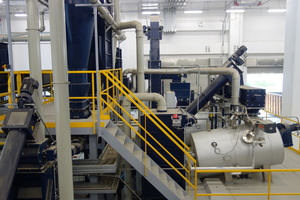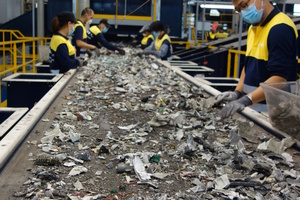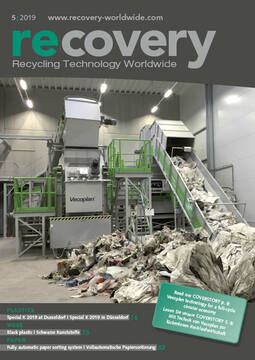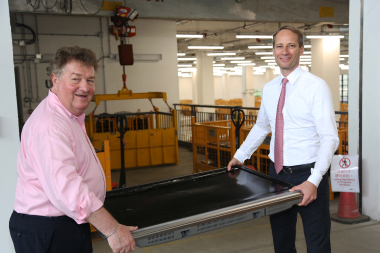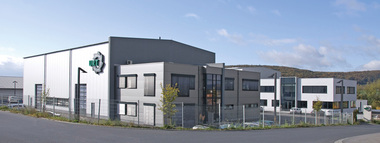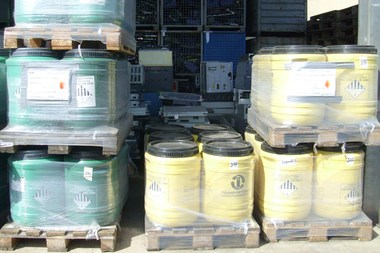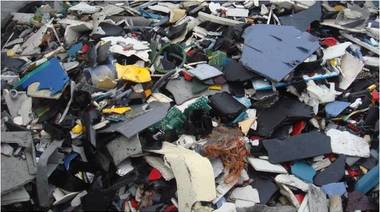New WEEE recycling system in Hong Kong
According to a study, every inhabitant of Hong Kong causes, in addition to the normal household waste, an average of 21.7 kg waste electrical and electronic equipment (WEEE) per year. To remedy this municipal waste problem, between January 2017 and May 2018 a huge recycling park was built for processing a wide range of materials in the city district of Tuen Mun. Part of the concept of this industry park (ECO Park) is the treatment and recycling of waste electrical and electronic equipment, which the ALBA Group, an international recycling specialist took over under the authority of the city of Hong Kong. All the WEEE recycling lines necessary to process the different equipment were realized by the German company Erdwich Zerkleinerungs-Systeme GmbH. These were shipped in 76 40-foot containers with a total weight of around 800 tonnes in three consignments to Hong Kong. Within 12 months, the entire plant engineering was successively installed and commissioned, and the operatives were trained on site. With this, the biggest order in the history of Erdwich, the recycling specialist, was completed, and following a successful trial phase, the system could be switched to regular operation.
Challenging conditions on site because of installation during hall construction
“The biggest challenge in the installation of the equipment was that we had to build our machines while the construction of the halls was not yet complete,“ reports Harald Erdwich, Managing Director of Erdwich Zerkleinerungs-Systeme GmbH. Further obstacles were caused by the complex bureaucratic procedure at the construction site in which every single work step was overseen and checked by the Hong Kong authorities. For some of the installation work, special certificates were necessary, and the Erdwich team was trained by the construction management on site. “That meant an additional time commitment that we had to take into consideration in our work planning,” adds Erdwich.
Adaption of the shredder technology to the specific task
“As LCD screens and tube TVs, different types of refrigerators and air conditioning systems, but also washing machines and general WEEE are contained in the waste mass, we had to apply different technologies to meet all requirements,” continues Erdwich. With two lines that are designed with robot technology for the recycling of LCD monitors, up to 60 items of equipment per hour can be shredded. For tube imaging devices, Erdwich also supplied two lines in which the monitors are processed by means of sawing technology. For air conditioning and refrigerator recycling, a total of three lines are used, each with a throughput rate of 40 items of equipment per hour. The recycling line for WEEE, like, for example, washing machines or dryers, but also vacuum cleaners and toasters, shreds around five tonnes material per hour when working at full capacity. The special feature of the total plant is that the material streams can be conducted such that further separation and processing steps can be optionally activated. From this results an increased purity of the yielded fractions and material quality, which can bring higher value creation.
“Finally, we were able to complete all parts of the plant by the agreed date and commission these bit by bit after approval by the authorities and hand over the plant to the plant operator. We are very proud that thanks to the dedication of our experience team, we as an SME managed to deliver such a large and complex order,” concludes Erdwich.

